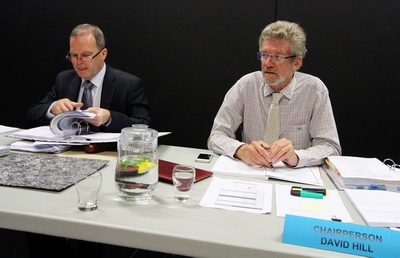Aupouri aquifer avocado orchard consents granted
7 Jun 2018, 9:25 AM
Independent commissioners have granted a group of 17 Far North avocado growers resource consent to collectively take more than two million cubic metres of water a year from the Aupouri aquifer.
Collectively, the 17 new consents will allow for a total of 2,060,655 cu m to be taken annually across three ‘aquifer management sub-units’; Waiparera (1,164,325 cu m), Motutangi (566,960 cu m) and Houhora (329,370).
The largest single allocation of 418,000 cu m goes to an applicant in the Motutangi zone, while the two smallest – both 14,900 cu m – are in the Waiparera and Houhora zones.
The 17 applicants – collectively referred to as the Motutangi-Waiharara Water Users Group – had been seeking permission to between them take almost 2.5 million cu m annually from a deep shell bed layer of the aquifer to irrigate their avocado orchards.
The applications were notified on a limited basis to more than 1000 owners/occupiers of adjacent properties in late October last year, with 57 submissions received; 42 opposed, eight in support and seven neutral.
Essentially, opponents’ concerns fell into eight broad categories; the volume of the proposed water take, its effect on existing bores, water quality, ecological, salt water intrusion, lack of consultation, inadequacy of assessment and monitoring and cultural issues.
 Independent Commissioners Peter Callander, left, and David Hill (chair) pictured during the hearing at Kaitaia in late March.
Independent Commissioners Peter Callander, left, and David Hill (chair) pictured during the hearing at Kaitaia in late March.
A panel of two independent commissioners David Hill (chair) and Peter Callander heard the applications on behalf of the Northland Regional Council, including three days at Kaitaia in late March, with the hearing officially closing 07 May 2018.
In their decision, issued recently, the commissioners noted that as the aquifer was the sole source of groundwater for local communities, submitters had expressed a reasonable concern its safety and security of supply be safeguarded.
Based on the evidence from the applicant, council experts and submitters, the commissioners acknowledged they were well aware the Aupouri aquifer was potentially vulnerable.
This vulnerability was “due to its connection to the sea and the variable amounts of rainfall recharge related to climatic changes and the clearing and planting of forestry blocks”.
“Lowering of groundwater levels due to more abstraction poses a risk of sea water intrusion and a risk to the ability of existing users to abstract groundwater and on the health of the Kaimaumau Wetland.”
However, based on technical information from the applicant and council experts, “there is agreement that the amount of recharge to the aquifer can comfortably sustain the level of groundwater abstraction that is proposed”.
The commissioners noted that “as with many groundwater development scenarios there is a degree of uncertainty about the magnitude of change that might occur”.
“This can be adequately addressed through an adaptive management strategy as set out in the Groundwater Monitoring and Contingency Plan and a staged approach to taking the maximum consented volumes of water.”
Similarly, the commissioners acknowledged the Department of Conservation’s “quite proper concerns about the value and importance of the Kaimaumau Wetland – and its national status” and concerns the proposed abstraction could affect it.
“After having regard to the actual and potential effects on the environment of allowing the proposed activity, and taking into account the relevant statutory provisions, we find that consent for the proposed activities should be granted…”
The commissioners determined the proposed activity was consistent with the provisions of the relevant statutory document(s) “and, with the conditions imposed, will avoid, remedy or mitigate the adverse effects that might otherwise be created”.
“Any risk to or potential effect on the Kaimaumau Wetland can be averted and avoided through the adaptive management conditions imposed.”
Similarly, the amount of water to be abstracted was “well within the parameters established by the best information currently available”.
The commissioners’ decision is now subject to appeal for 15 working days.
Their full decision – including a raft of conditions – is available online at www.nrc.govt.nz/consentdecisions
